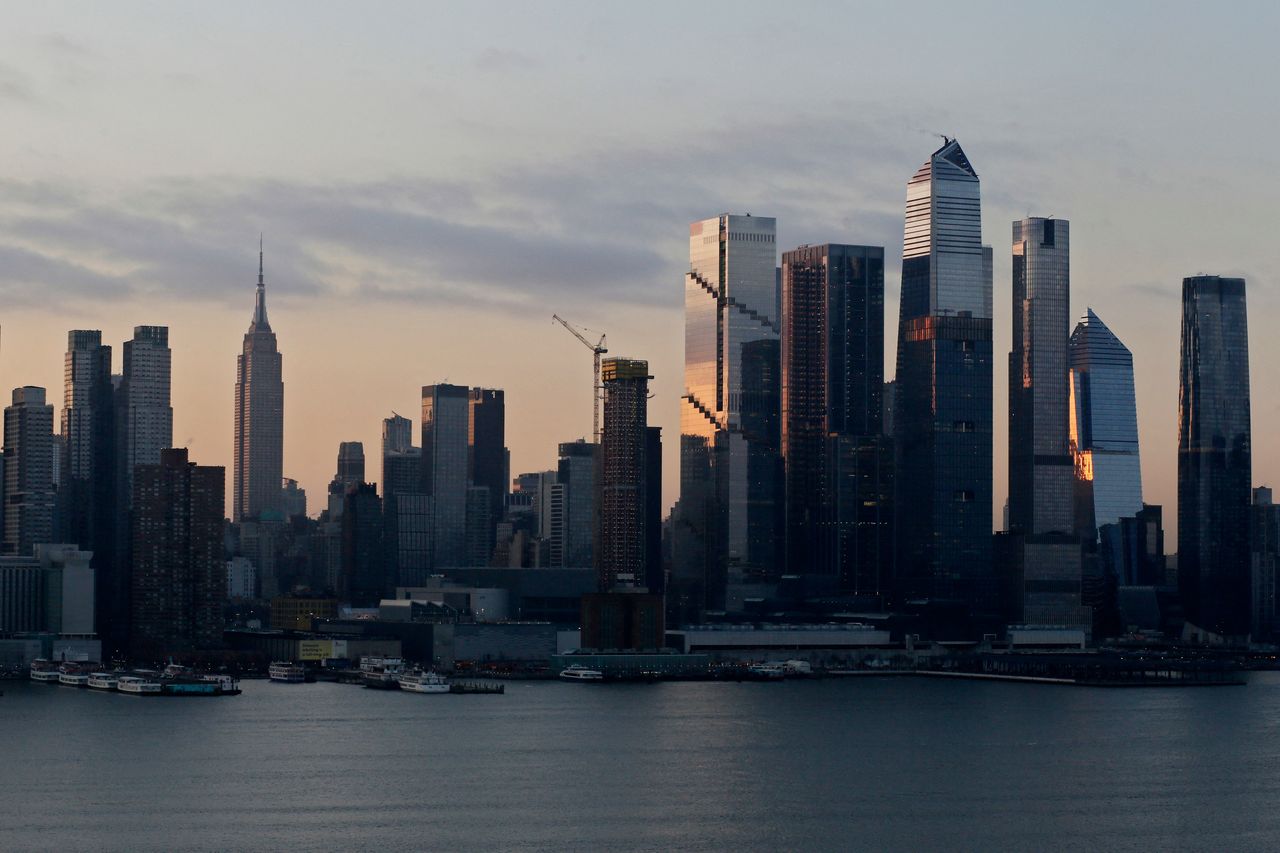The Rich Got a Bit Poorer Last Year
The wealthy took a big hit last year.
The global population of billionaires sank for the first time since 2018, dropping 3.5% to 3,194, while their wealth declined by 5.5% to US$11 trillion, London-based Altrata, a data firm focused on the rich, reported in its annual Billionaire Census earlier this week.
The drop in wealth was the second-largest fall in the last decade, although Altrata noted that it only partially offset a double-digit jump in billionaire wealth in 2021. The company’s report draws from data collected by its Wealth-X unit.
Zooming out, the global population of those with US$1 million or more in assets fell by 3.3% to 21.7 million individuals, while their wealth sank by 3.6% to US$83 trillion, Paris-based Capgemini, an information technology and services consulting company, said in its annual World Wealth Report released on Thursday. The drops are the biggest in 10 years, Capgemini said.
The population of the ultra-rich, those with at least US$30 million in assets, fell the most, sinking 4.6% last year after a 9.6% surge in 2021, the company said. The wealth of this group of 210,000 individuals fell by 3.7% last year.
Altrata noted that billionaires represent just 0.8% of those with at least $30 million or more in net worth, yet they have a 24% share of this group’s total wealth.
Both Altrata and Capgemini credit slumping economies, falling stock markets, rising interest rates, and geopolitical tensions as contributing to the declines. The reports also both noted that many of the world’s richest responded by turning to wealth preservation strategies.
Among billionaires, this had mixed results, Altrata said. Those who made their money in technology, healthcare, and real estate lost more than 5% of their wealth last year, while those whose wealth accumulated through aerospace and defense, construction and engineering, and food and beverage, saw their fortunes rise, the company said.
According to Capgemini, two-thirds of those with US$1 million or more turned to wealth preservation by cutting their stock holdings by nearly six percentage points to 23% of their total portfolios and boosting their cash and cash-equivalent holdings by almost 10 percentage points to 34% as of January this year.
While global and domestic economies, capital markets, and currency movements affect all the rich, Altrata noted that gains or losses are also due to individual strategies for business and investments, wealth planning, taxes, and philanthropy.
“No billionaire’s asset structure is the same as another’s, and the impact on their wealth will be different for each person,” the report said.
The Billionaire Census also reported that the richest of all, those with US$50 billion or more, lost 23.2% of their wealth, while those at the bottom of the pyramid, with US$1 billion to US$2 billion in assets (representing just over half of all billionaires), lost 3.2%.
Most billionaires, 955, live in the U.S., although the population dropped by 2.1% last year. There are 357 billionaires in China, down by 10.8% and 173 in Germany, down by 1.7%. The only population gains reported last year were in Singapore, which now has 54 billionaires, up by four; and in Moscow, which has 76 billionaires, up by one.
The average age of the world’s billionaires is 67, with those under 50 accounting for just 10% of the total, Altrata said. There are more female billionaires under 50 than over, although they comprise just under one-fifth of the under-50 group.
While the population of rich individuals, and their total wealth, dropped in Europe, Asia Pacific, and North America last year, both the population of the rich and their wealth rose in Africa, Latin America, and the Middle East, Capgemini said.
The number of rich in Latin America rose by 4.7% as their wealth increased by 2.1%; Africa’s rich gained 4.3% new members who combined wealth increased by 1.6%, while the Middle East’s rich gained 2.8% new members as their wealth rose by 1.5%, Capgemini said.
 Copyright 2020, Dow Jones & Company, Inc. All Rights Reserved Worldwide. LEARN MORE
Copyright 2020, Dow Jones & Company, Inc. All Rights Reserved Worldwide. LEARN MORE
This stylish family home combines a classic palette and finishes with a flexible floorplan
Just 55 minutes from Sydney, make this your creative getaway located in the majestic Hawkesbury region.
Continued stagflation and cost of living pressures are causing couples to think twice about starting a family, new data has revealed, with long term impacts expected
Australia is in the midst of a ‘baby recession’ with preliminary estimates showing the number of births in 2023 fell by more than four percent to the lowest level since 2006, according to KPMG. The consultancy firm says this reflects the impact of cost-of-living pressures on the feasibility of younger Australians starting a family.
KPMG estimates that 289,100 babies were born in 2023. This compares to 300,684 babies in 2022 and 309,996 in 2021, according to the Australian Bureau of Statistics (ABS). KPMG urban economist Terry Rawnsley said weak economic growth often leads to a reduced number of births. In 2023, ABS data shows gross domestic product (GDP) fell to 1.5 percent. Despite the population growing by 2.5 percent in 2023, GDP on a per capita basis went into negative territory, down one percent over the 12 months.
“Birth rates provide insight into long-term population growth as well as the current confidence of Australian families,” said Mr Rawnsley. “We haven’t seen such a sharp drop in births in Australia since the period of economic stagflation in the 1970s, which coincided with the initial widespread adoption of the contraceptive pill.”
Mr Rawnsley said many Australian couples delayed starting a family while the pandemic played out in 2020. The number of births fell from 305,832 in 2019 to 294,369 in 2020. Then in 2021, strong employment and vast amounts of stimulus money, along with high household savings due to lockdowns, gave couples better financial means to have a baby. This led to a rebound in births.
However, the re-opening of the global economy in 2022 led to soaring inflation. By the start of 2023, the Australian consumer price index (CPI) had risen to its highest level since 1990 at 7.8 percent per annum. By that stage, the Reserve Bank had already commenced an aggressive rate-hiking strategy to fight inflation and had raised the cash rate every month between May and December 2022.
Five more rate hikes during 2023 put further pressure on couples with mortgages and put the brakes on family formation. “This combination of the pandemic and rapid economic changes explains the spike and subsequent sharp decline in birth rates we have observed over the past four years,” Mr Rawnsley said.
The impact of high costs of living on couples’ decision to have a baby is highlighted in births data for the capital cities. KPMG estimates there were 60,860 births in Sydney in 2023, down 8.6 percent from 2019. There were 56,270 births in Melbourne, down 7.3 percent. In Perth, there were 25,020 births, down 6 percent, while in Brisbane there were 30,250 births, down 4.3 percent. Canberra was the only capital city where there was no fall in the number of births in 2023 compared to 2019.
“CPI growth in Canberra has been slightly subdued compared to that in other major cities, and the economic outlook has remained strong,” Mr Rawnsley said. “This means families have not been hurting as much as those in other capital cities, and in turn, we’ve seen a stabilisation of births in the ACT.”
This stylish family home combines a classic palette and finishes with a flexible floorplan
Just 55 minutes from Sydney, make this your creative getaway located in the majestic Hawkesbury region.






















